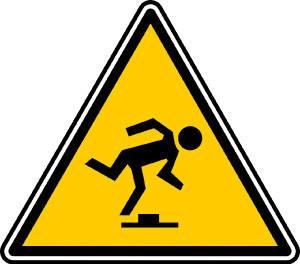
In a recent License Appeal Tribunal (LAT) decision between a claimant and TD Insurance Meloche Monex (D.S. and TD Insurance Meloche Monex #16-000131/AABS), it would seem the stranger the circumstances, the wider the allowance to access Ontario accident benefits. This most recent decision (which is final, no appeal possible) has determined that running along the sidewalk, tripping and striking a parked car is now deemed an “accident” by definition.
In this case, the injuries are catastrophic in nature. The man involved had consumed alcohol and was running home in the early hours of September 27, 2015. He ran onto the lawn of a private residence, tripped over stone blocks, lost his balance and fell head first towards a car parked in a driveway. There were no witnesses to the incident. The claimant sustained severe injuries, including paralysis below the armpits, complete loss of bowel and bladder control, difficulties swallowing along with facial lacerations and fractures.
According to the claimant, he struck his face and body against the parked car and this entitled him to statutory accident benefits issued under an Ontario automobile policy. The insurer, TD Insurance Meloche Monex, took the position that the definition of “accident” had not been met. They indicated that the injury stemmed from a fall against the pavement and this caused injuries.
Experts opined on the various bio-mechanics of the fall, the vehicle, the claimant, etc., but at the heart of the decision was the definition of “accident” itself. The policy defines “accident” as:
“An incident in which the use or operation of an automobile directly causes an impairment or directly causes damage to any prescription eyewear, denture, hearing aid, prosthesis or medical/dental device.”
Prior case law was reviewed, Amos v. Insurance Corporation of British Columbia, which outlined the Purpose and Causation Test. Did the accident result from the ordinary and well-known activities to which automobiles are put? And was there some causal relationship between the claimant’s injuries and the ownership, use or operation of the vehicle, or was it merely incidental or fortuitous?
The LAT decided that the expert reports were sufficient to determine that the claimant struck the vehicle which caused his injuries. Regardless that the vehicle was parked and the claimant was running, tripped, and fell, the LAT determined that this incident does meet the definition of “accident” and allowed the claim to be advanced for statutory accident benefits, which could top $4 million over the claimant’s lifetime (depending on the eligibility for disability benefits). It is unclear if a tort claim was being advanced in this incident.
Lesson learned: Park vehicles in a garage.
Laurie Walker, CIP, CRM
SVP, Director of Operations, Canada